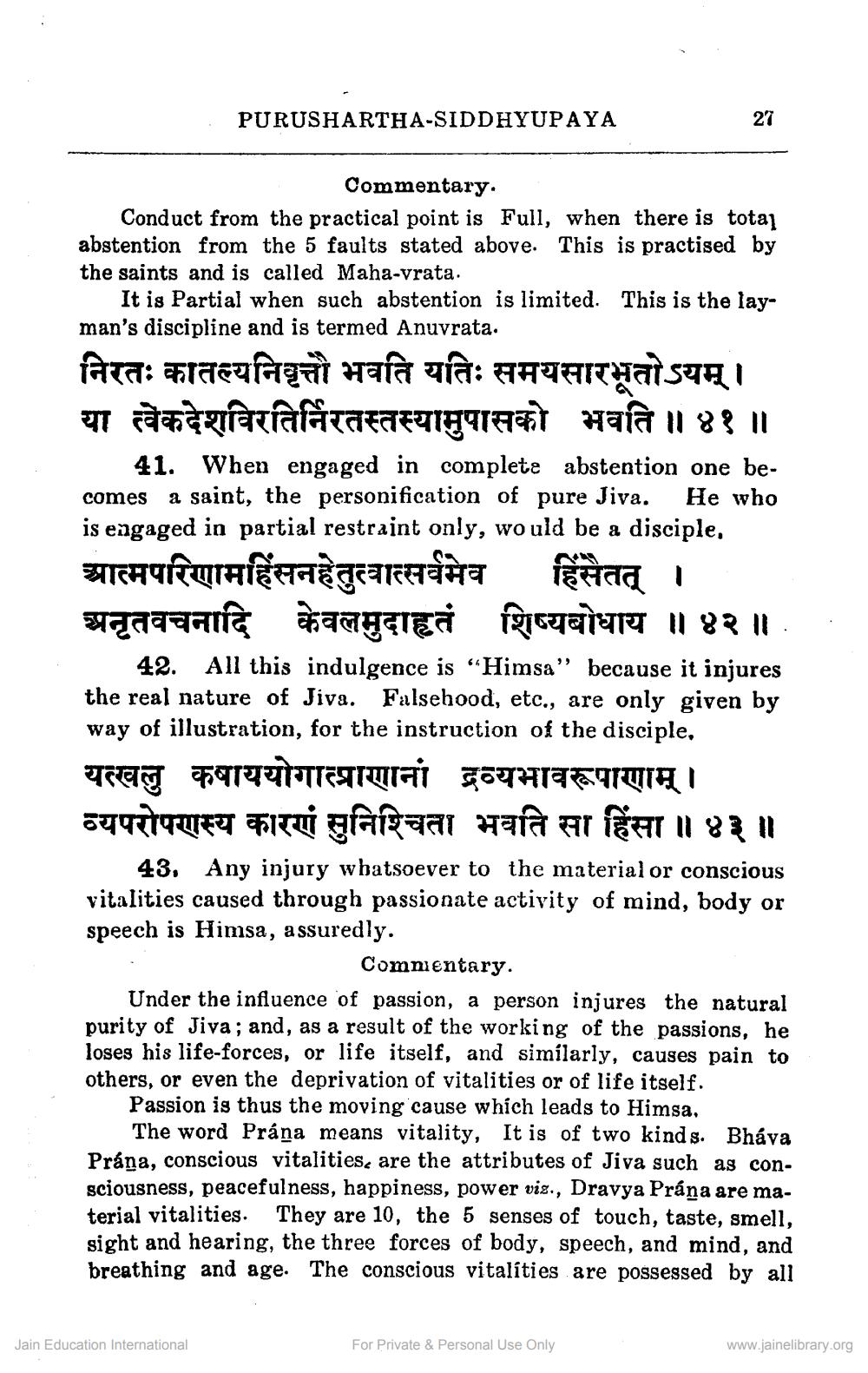________________
PURUSHARTHA-SIDDHYUPAYA
Commentary.
Conduct from the practical point is Full, when there is total abstention from the 5 faults stated above. This is practised by the saints and is called Maha-vrata.
It is Partial when such abstention is limited. This is the layman's discipline and is termed Anuvrata.
निरतः कातल्यनिवृत्तौ भवति यतिः समयसारभूतोऽयम् । या त्वेकदेशविरतिर्निरतस्तस्यामुपासको भवति ॥ ४१ ॥
27
41. When engaged in complete abstention one becomes a saint, the personification of pure Jiva. He who is engaged in partial restraint only, would be a disciple,
आत्मपरिणामहिंसन हेतुत्वात्सर्वमेव अनृतवचनादि केवलमुदाहृतं
हिंसैतत् । शिष्यबोधाय ॥ ४२ ॥
42. All this indulgence is "Himsa" because it injures the real nature of Jiva. Falsehood, etc., are only given by way of illustration, for the instruction of the disciple,
यत्खलु कषाययोगात्प्राणानां द्रव्यभावरूपाणाम् । व्यपरोपणस्य कारणं सुनिश्चिता भवति सा हिंसा ॥ ४३ ॥
43. Any injury whatsoever to the material or conscious vitalities caused through passionate activity of mind, body or speech is Himsa, assuredly.
Jain Education International
Commentary.
Under the influence of passion, a person injures the natural purity of Jiva; and, as a result of the working of the passions, he loses his life-forces, or life itself, and similarly, causes pain to others, or even the deprivation of vitalities or of life itself.
Passion is thus the moving cause which leads to Himsa.
The word Prána means vitality, It is of two kinds. Bháva Prána, conscious vitalities, are the attributes of Jiva such as consciousness, peacefulness, happiness, power viz., Dravya Prána are material vitalities. They are 10, the 5 senses of touch, taste, smell, sight and hearing, the three forces of body, speech, and mind, and breathing and age. The conscious vitalities are possessed by all
For Private & Personal Use Only
www.jainelibrary.org




